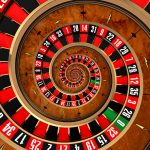 Your heart rate is rapid, your palms are sweaty and you feel tense. The excitement increases as you feel the adrenaline soaring through your body. This ‘rush’ is as addictive and powerful as an illegal drug out there. It is just a couple of minutes before you know your fate. You’ve done it! You’ve won! The euphoria when you realise that all that money is yours. You think of all the nice things you can now buy, but wait, what if you gamble your winnings on the next race/card game you could win twice as much, you could have twice as many nice things. It’s clear you are on a lucky streak, so yeah, one more bet then you will call it quits for today.
Your heart rate is rapid, your palms are sweaty and you feel tense. The excitement increases as you feel the adrenaline soaring through your body. This ‘rush’ is as addictive and powerful as an illegal drug out there. It is just a couple of minutes before you know your fate. You’ve done it! You’ve won! The euphoria when you realise that all that money is yours. You think of all the nice things you can now buy, but wait, what if you gamble your winnings on the next race/card game you could win twice as much, you could have twice as many nice things. It’s clear you are on a lucky streak, so yeah, one more bet then you will call it quits for today.
‘Just one more and you will walk away’-the mantra you repeat each time this situation arises.
You lost! All that surging excitement and adrenaline drains from your body. Your stomach begins to churn and you start to shake in realisation at what you have just lost all those nice things you pictured, gone.
The definition of the word is ‘taking risky action in the hope of a desired result’. Gambling is based on expectation, hope, wishful thinking, but above that, luck. Sadly, the odds will always be stacked against you, for every win, there will be many losses. For those who let their habits become addictions, they only remember the good times, the times they won. That feeling of euphoria, just like any drug addict is what you crave and you will do anything to get that feeling back regardless of the consequences.
The more you lose, the more panic stricken you become, and the more you try to recoup the loss. You become desperate, common sense disappears as the stakes become higher and your need to win overwhelms your thinking.
The majority like to partake in a little gambling at one point or another in their lives whether it be a pound on the Grand National, a lottery ticket/scratch card, a game of bingo or a raffle ticket. We all enjoy that moment of anticipation when the winner(s) are announced.
However, when it no longer becomes enjoyable and you feel compelled to peruse a win regardless of the odds, it has become an addiction. It becomes a problem when you gamble more than is affordable, it affects your ability to function, and when you crave that next gambling ‘fix’.
Some are fortunate and recognise they have an addiction early on and seek out professional help. Sadly, for others, they do not see the seriousness of their situation until they have lost more than they can recoup their job, home and even family.
There aren’t any pills or potions to take to cure gambling and we must rely mostly on talking therapies. One talking therapy that has proved successful is hypnotherapy. The hypnotist will guide the client into a state of relaxation, bypassing the conscious mind which allows the subconscious mind to focus on positive suggestions, reinforcing positive behaviours and therefore making long-term changes. The therapy will allow the client to subconsciously modify their behaviour and understand that their actions are not appropriate or beneficial to their welfare.
Like most addictions, be it gambling, alcohol, drugs or food, the addict craves their ‘fix’. Hypnosis helps by destroying the craving, replacing it with a positive and appropriate behaviour. It may be suggested that the person takes up a new hobby to replace the addiction. The client will be given tools and techniques when the urge to gamble arises. The hypnotherapist may also teach some self-hypnosis skills to use when appropriate. Not only will the hypnosis enable the client to regain a sense of calm, they will no longer feel the agitation which goes with most addictions, but will be able to rebuild their life free of addiction and renewed hope.
